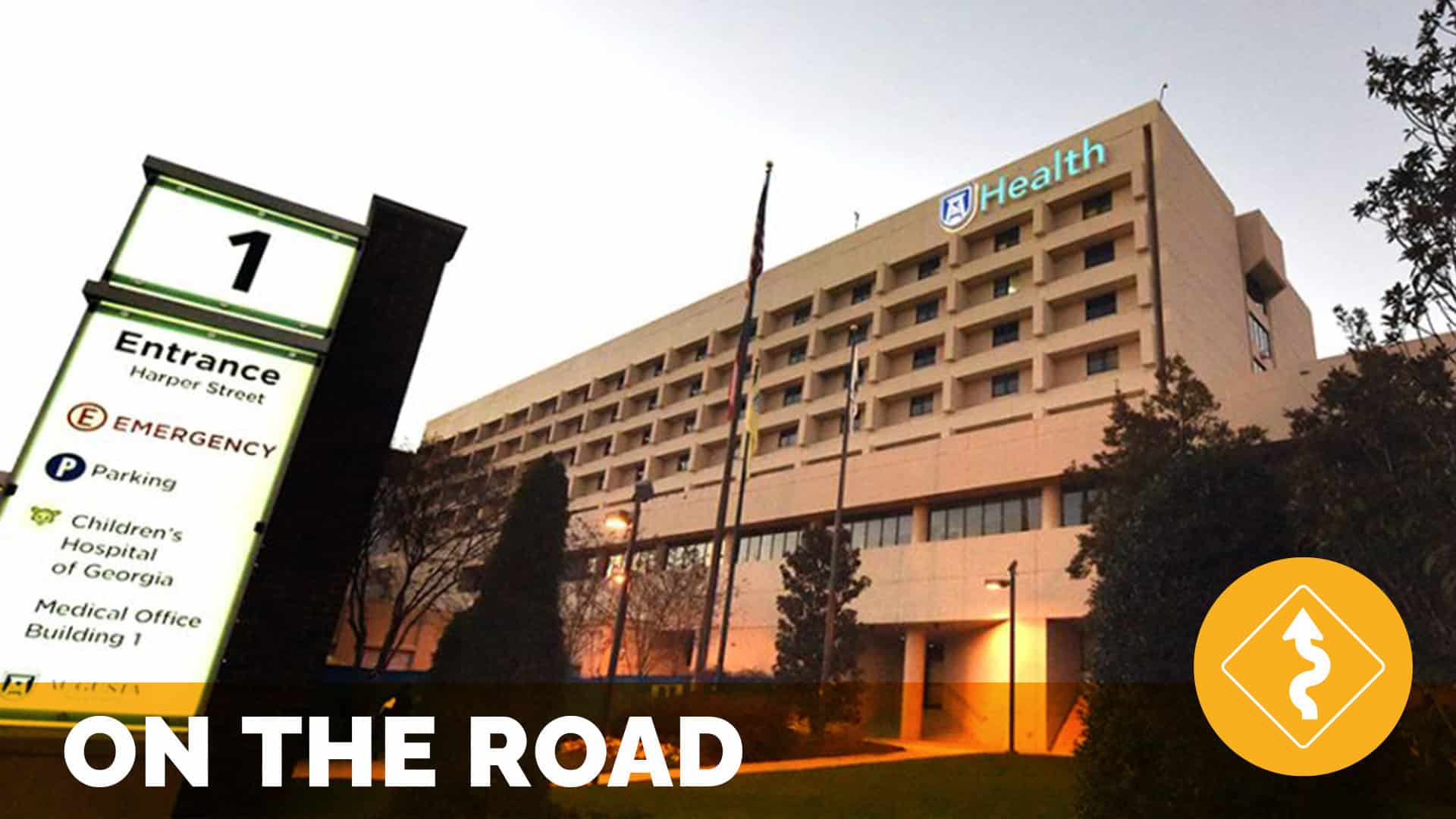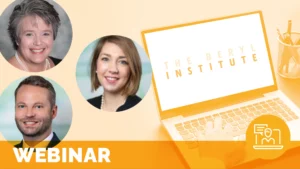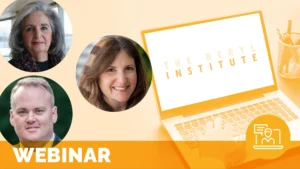Reinforcing “I am the Patient Experience”

On the Road with GRHealth – January 2014
by Jason A. Wolf
I was honored to spend time recently with the team at Georgia Regents Health (GRHealth) in Augusta, GA. My visit was a combination of opportunity to listen and learn and a chance to speak and share as part of GRHealth’s Patient- and Family- Centered Care Annual Conference. Tucked in this vibrant Southeastern city was a powerful example of what a focus on PFCC can mean for an institution, its people and the community it serves.
GRHealth has had a long-standing commitment to and efforts focused on the best in experience for all in their care. This has driven the establishment of not only leading practices implemented internally, but a sought after expertise that carries my host, Bernard Roberson, Administrative Director of Patient Family Centered Care and his team, not just across campus, but around the country to share their story.
During my visit I experienced the power of leadership commitment and staff engagement, heard from the voices of patient advisors and saw their efforts in action. While this review only scratches the surface of all GRHealth is doing to address the patient experience, I hope it inspires you to dig deeper and learn more from their incredible efforts.
Start with a Definition and Observable Commitment
My travels have informed me and I continue to reinforce as I speak around the world, that definition is the critical starting point in experience efforts. The point being without definition you have no basis for action. Healthcare organizations would not operate their institutions without some sort of strategic plan and commitment to certain outcomes. This same idea holds true when driving experience efforts and improvement.
GRHealth not only has a definition that helps frame the importance of PFCC, they also have an infrastructure – both virtual and in people resources – committed to driving ideas to outcomes. A significant portion of action is actually taken on by patient advisors themselves, which I discuss further below.
GRHealth has put a stake in the ground around what they see Patient- and Family-Centered Care to be and they share it prominently on their facility site. They are pioneers in the concept of Patient -and Family-Centered Care having started their PFCC journey over 20 years ago. In that time they have established one of the largest patient advisor programs in the United States. They identify PFCC as an approach that removes the barriers to having collaborative partnerships between healthcare providers, patients and families and are clear to state that families are an extension of the patient.
GRHealth’s PFCC efforts are based on four principles of practice:
- Treat patients and families with dignity and respect.
- Provide clear, comprehensive information in ways that are useful and empowering.
- Create opportunities for patients and families to participate in ways that enhance their control and independence.
- Ensure that collaboration is inherent in our policies, programs, education and delivery of care.
The commitment presented in these principles guide the actions of team members across the system at all levels of the organization and across the work they tackle – from direct care, to research and to the education of future healthcare professionals. I also had the chance to see them at work as I facilitated and learned from a panel of institutional leaders and engaged with staff at 6th annual PFCC Conference. My first exposure to these ideas in practice was during a leadership panel on integrating the principles of PFCC.
Sharing the Voices of Leadership
I had the chance to participate and engage with a team of leaders from across GRHealth, including Steven Scott, COO, Teri Perry, interim CNO, James Mumford, Administrator for the Children’s Hospital, the PFCC team, physician leadership and patient advisors. This informative panel helped paint a picture of work taking place underneath the PFCC effort. Covering topics from engaging patients to addressing the issues of healthcare reform, the panel revealed central practices driving GRHealth’s PFCC success.
The central themes and key lessons that emerged included:
- There needs to be a fundamental and shared belief that PFCC is a valuable and impactful strategic priority for the organization.
- Leadership at all levels is necessary to model, reinforce and ensure desired actions and behaviors
- Recognize that there is not “one-way” to do things, but rather it is critical to educate, frame the expectations and let people make the best choices in their intentions.
- Reinforce the power of input from all points – patients, peers, team members – and ensure continued partnership to move ideas to action and outcomes.
- Must be committed to gaining and sustaining staff buy-in so they are not just executors of ideas, but owners of them.
- Understand that simply having principles of even advisors is not a panacea. Improving PFCC and patient experience is a journey, not solved by checklists, but rather sustained by continuous effort.
In addition, a few central ideas were shared about specific practices having an impact, which included: Top Doctor Event
The use of family faculty to teach healthcare students, meaning actual family members share their experiences, knowledge and expertise in helping to inform students on the important choices they have in their future work. (While I will not write about the family faculty program here, there is an overview on the GRHealth Website I encourage you to review.)
The inclusion of patients and families as active members of new employee orientation. Ensuring staff members are aware of and considering the people they serve as well as the requirements of the organization help frame their perspective and focus on PFCC from day one.
Repurposing visitation from visiting hours to a family presence policy that make family members recognized as valued partners in the care experience to be engaged, considered and cared for.
Maintaining with consistency core proven tactics such as bedside shift report and hourly rounding to ensure effective communication and awareness at all times.
While the ideas shared do not cover all that GRHealth has in action, it provides a practical perspective that could be of value to any healthcare organization looking to more actively address the patient experience. This commitment was further reinforced in the broader commitment to engaging staff across the system as part of the annual PFCC Conference.
Learning as a Community
As I shared in an earlier On the Road, I am seeing a slow but emerging number of healthcare organizations considering facility or system-level learning events or conferences to share and reinforce key learning on patient experience improvement. GRHealth’s 6th Annual PFCC Conference took place during my visit and I had the honor of addressing the staff on recognizing their individual role in impacting the patient experience. The theme – I am the Patient Experience – in line with The Beryl Institute’s efforts and video reinforced how everyone has a choice to make in how they engage patients and family members and as a result has a significant influence on experience.
Top Doctor ReceptionThe power of this gathering was not only in the learning sessions, but also in the engagement and dialogue had among participants. I highlight this element of GRHealth’s efforts to reinforce the commitment organizations can (and I believe should) make to their people in driving patient experience efforts. Providing learning opportunities and committing to them over extended periods of time serves as a means to reinforce key messages, introduce new ideas and ensure a continued dialogue on why PFCC and patient experience are critical to the organization’s efforts overall.
I continue to ask organizations if they have and encourage them to consider the significant stake made in committing to engage and educate staff in this way. Often we focus on the patient or family voice alone and while central to the effort, it will always be the people in an organization that drive outcomes. With that it is important to return to the efforts at GRHealth that have been at the foundation of their efforts and continue to bolster their standing as a leader in PFCC, the voices of their patient advisors.
Engaging the Voices of Patients and Family
My visit to GRHealth was highlighted by the incredible contributions and efforts of the patient advisor program. With more than 200 advisors engaged in over 15 standing committees in various areas around the organization, patient and family voice is not tangential to the strategy and direction of GRHealth, but central to it. The engagement of these advisors is not simply in a council that informs or advises in passive intermittent gatherings, instead these individuals apply, are formally trained and then take active roles in various aspects of organizational life from participating in facility or unit councils, to joining quality and safety teams, or contributing to facility design processes.Family Choice Award Winners
More so, as I saw in action, advisors play an active versus reactive role in their efforts to support the organization. A perfect example of this type of engagement could be found in the significant contributions patient advisors made both as speakers at the PFCC Conference and as participants on the leadership panel. It also showed up in a very thoughtful program where a team of advisors felt it was important to recognize a number of physicians who were named in the publication America’s Top Doctors. The advisors themselves proposed a reception to recognize and honor these individuals who do so much for the facility, but often go unrecognized.
What was amazing in this example was that patient and family advisors were the one’s who proposed and then helped plan an event for these physicians. The team at the reception shared with me that they believe their role and their investment in the organization was to ensure everyone was heard, understood and recognized. There was a valuable lesson here in the value and impact of patient and family advisors. They want to contribute, they realize the value that all members of the system bring, and the more leeway we give them to engage and lead, the greater potential for profound outcomes exist.
The commitment, energy and ownership exemplified by these advisors was an inspiration, but also a simple reminder that in engaging all voices in the patient experience process we open the greatest opportunities for success. As one advisor said to me as the event closed, ” I am proud to be able to make a difference for a place that so impacted my life and my family. They have given me the chance to actively contribute, they listen and support us and see us as partners in improvement for all we do at GRHealth.”
That perhaps is the lesson we can all take away from the great examples and experience provided during my time at GRHealth. It is opening the invitation to contribute, providing the forums for learning and dialogue and offering the means within reason to act that are the groundwork for engagement by all members of a healthcare organization. This lies at the core of PFCC, it is central to the definition of patient experience itself and it is fundamentally good business as we continue to ensure the best in experience for all those who enter our healthcare settings around the world.
Special thanks to the entire team at GRHealth, including the PFCC Team, senior leadership, the staff and patient advisors for a wonderful visit. They exemplify a true and palpable commitment to this work and I believe these efforts can serve as an exciting model for others looking to ensure the broadest collection of voices possible in improving their own experience efforts.
Related content
-
 Culture & Leadership | Policy & Measurement
Culture & Leadership | Policy & MeasurementGlobal Perspectives on Human Experience: Where we stand and new frontiers
Listen as Jason A. Wolf, PhD, CPXP, President & CEO, The Beryl Institute discusses the perspectives of human experience globally and how we can and must elevate and transform what matters to both those served by healthcare and those who show up to serve each day. Get an early peek at the latest global consumer
Learn more -
 Culture & Leadership | Infrastructure & Governance | Staff & Provider Engagement
Culture & Leadership | Infrastructure & Governance | Staff & Provider EngagementHow Daily Huddles Launch Conversation to Drive Metric Improvement
Since 2015 Cone Health Medical Group has been intentional about creating a culture of service excellence. Watch this webinar to discover how we partnered with Ritz Carlton Leadership Center to implement some of their key components ensure we have communication traveling from our sites up to our leaders and from our leaders down to our
Learn more -
 Culture & Leadership | Patient Family & Community Engagement
Culture & Leadership | Patient Family & Community EngagementApplying Equity, Diversity, and Inclusion in Co-design with Patient Experience Partners
Watch this webinar to learn about the Patient Experience Partner (PXP) Program at North York General Hospital (NYGH), a 480-acute care bed community academic hospital in Toronto, Ontario, Canada. The presenters will provide an overview of a specialized volunteer program for the purpose of informing hospital service design through the patient and caregiver lens. PXPs
Learn more
